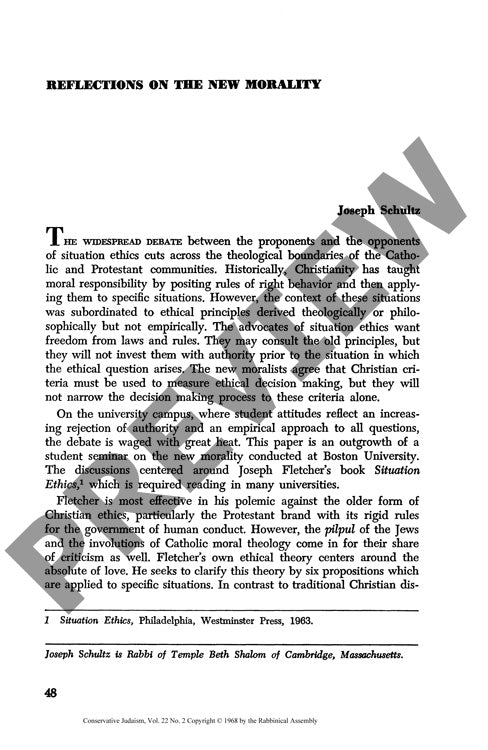Reflections on the New Morality
Couldn't load pickup availability
Can religious tradition and situation ethics find common ground in addressing modern moral challenges? Contemporary debates about situational versus rule-based morality often present these approaches as inherently opposed, yet careful analysis reveals surprising convergences. Through comparative analysis of Joseph Fletcher's "Situation Ethics" and traditional Jewish moral philosophy, significant parallels emerge in their rational approaches to moral reasoning, case-oriented analysis, and dynamic concepts of conscience. Drawing from discussions in a Boston University student seminar, this research examines both traditions' treatment of contextual decision-making through analysis of Talmudic sources and rabbinic literature. While situation ethics and Jewish moral philosophy share an emphasis on prospective rather than retrospective moral judgment, they fundamentally diverge in their treatment of law. Situation ethics maintains Christianity's traditional dichotomy between law and love, whereas Judaism integrates these elements harmoniously. Although situation ethics offers valuable insights for navigating moral challenges in a secularized world, its rejection of legal frameworks as "necessary dangers" limits its practical applicability for mass moral guidance. Judaism's synthesis of law and love, particularly evident in its concept of obligations beyond legal requirements, ultimately provides a more comprehensive framework for addressing contemporary ethical challenges while ensuring continued moral transmission across generations.

More Information
-
Physical Description
-
Publication Information
Published 1968
ISBN
-
Publication Credits
Joseph Schultz

